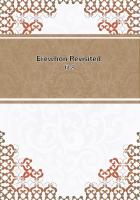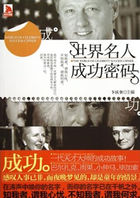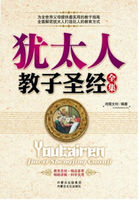When this had been effected, the proprietor might threaten and punish as he liked, but he rarely succeeded in unearthing the treasure. Many a peasant, under such circumstances, bore patiently the most cruel punishment, and saw his sons taken away as recruits, and yet he persisted in declaring that he had no money to ransom himself and his children. A spectator in such a case would probably have advised him to give up his little store of money, and thereby liberate himself from persecution; but the peasants reasoned otherwise. They were convinced, and not without reason, that the sacrifice of their little capital would merely put off the evil day, and that the persecution would very soon recommence. In this way they would have to suffer as before, and have the additional mortification of feeling that they had spent to no purpose the little that they possessed. Their fatalistic belief in the "perhaps" (avos') came here to their aid. Perhaps the proprietor might become weary of his efforts when he saw that they led to no result, or perhaps something might occur which would remove the persecutor.
It always happened, however, that when a proprietor treated his serfs with extreme injustice and cruelty, some of them lost patience, and sought refuge in flight. As the estates lay perfectly open on all sides, and it was utterly impossible to exercise a strict supervision, nothing was easier than to run away, and the fugitive might be a hundred miles off before his absence was noticed. But the oppressed serf was reluctant to adopt such an extreme measure. He had almost always a wife and family, and he could not possibly take them with him; flight, therefore, was expatriation for life in its most terrible form. Besides this, the life of a fugitive was by no means enviable. He was liable at any moment to fall into the hands of the police, and to be put into prison or sent back to his master. So little charm, indeed, did this life present that not infrequently after a few months or a few years the fugitive returned of his own accord to his former domicile.
Regarding fugitives or passportless wanderers in general, I may here remark parenthetically that there were two kinds. In the first place, there was the young, able-bodied peasant, who fled from the oppression of his master or from the conscription. Such a fugitive almost always sought out for himself a new domicile--
generally in the southern provinces, where there was a great scarcity of labourers, and where many proprietors habitually welcomed all peasants who presented themselves, without making any inquiries as to passports. In the second place, there were those who chose fugitivism as a permanent mode of life. These were, for the most part, men or women of a certain age--widowers or widows--
who had no close family ties, and who were too infirm or too lazy to work. The majority of these assumed the character of pilgrims.
As such they could always find enough to eat, and could generally even collect a few roubles with which to grease the palm of any zealous police-officer who should arrest them. For a life of this kind Russia presented peculiar facilities. There was abundance of monasteries, where all comers could live for three days without questions being asked, and where those who were willing to do a little work for the patron saint might live for a much longer period. Then there were the towns, where the rich merchants considered almsgiving as very profitable for salvation. And, lastly, there were the villages, where a professing pilgrim was sure to be hospitably received and entertained so long as he refrained from stealing and other acts too grossly inconsistent with his assumed character. For those who contented themselves with simple fare, and did not seek to avoid the usual privations of a wanderer's life, these ordinary means of subsistence were amply sufficient. Those who were more ambitious and more cunning often employed their talents with great success in the world of the Old Ritualists and Sectarians.
The last and most desperate means of defense which the serfs possessed were fire-raising and murder. With regard to the amount of fire-raising there are no trustworthy statistics. With regard to the number of agrarian murders I once obtained some interesting statistical data, but unfortunately lost them. I may say, however, that these cases were not very numerous. This is to be explained in part by the patient, long-suffering character of the peasantry, and in part by the fact that the great majority of the proprietors were by no means such inhuman taskmasters as is sometimes supposed.
When a case did occur, the Administration always made a strict investigation--punishing the guilty with exemplary severity, and taking no account of the provocation to which they had been subjected. The peasantry, on the contrary--at least, when the act was not the result of mere personal vengeance--secretly sympathised with "the unfortunates," and long cherished their memory as that of men who had suffered for the Mir.
In speaking of the serfs I have hitherto confined my attention to the members of the Mir, or rural Commune--that is to say, the peasants in the narrower sense of the term; but besides these there were the Dvorovuye, or domestic servants, and of these I must add a word or two.
The Dvorovuye were domestic slaves rather than serfs in the proper sense of the term. Let us, however, avoid wounding unnecessarily Russian sensibilities by the use of the ill-sounding word. We may call the class in question "domestics"--remembering, of course, that they were not quite domestic servants in the ordinary sense.
They received no wages, were not at liberty to change masters, possessed almost no legal rights, and might be punished, hired out, or sold by their owners without any infraction of the written law.















